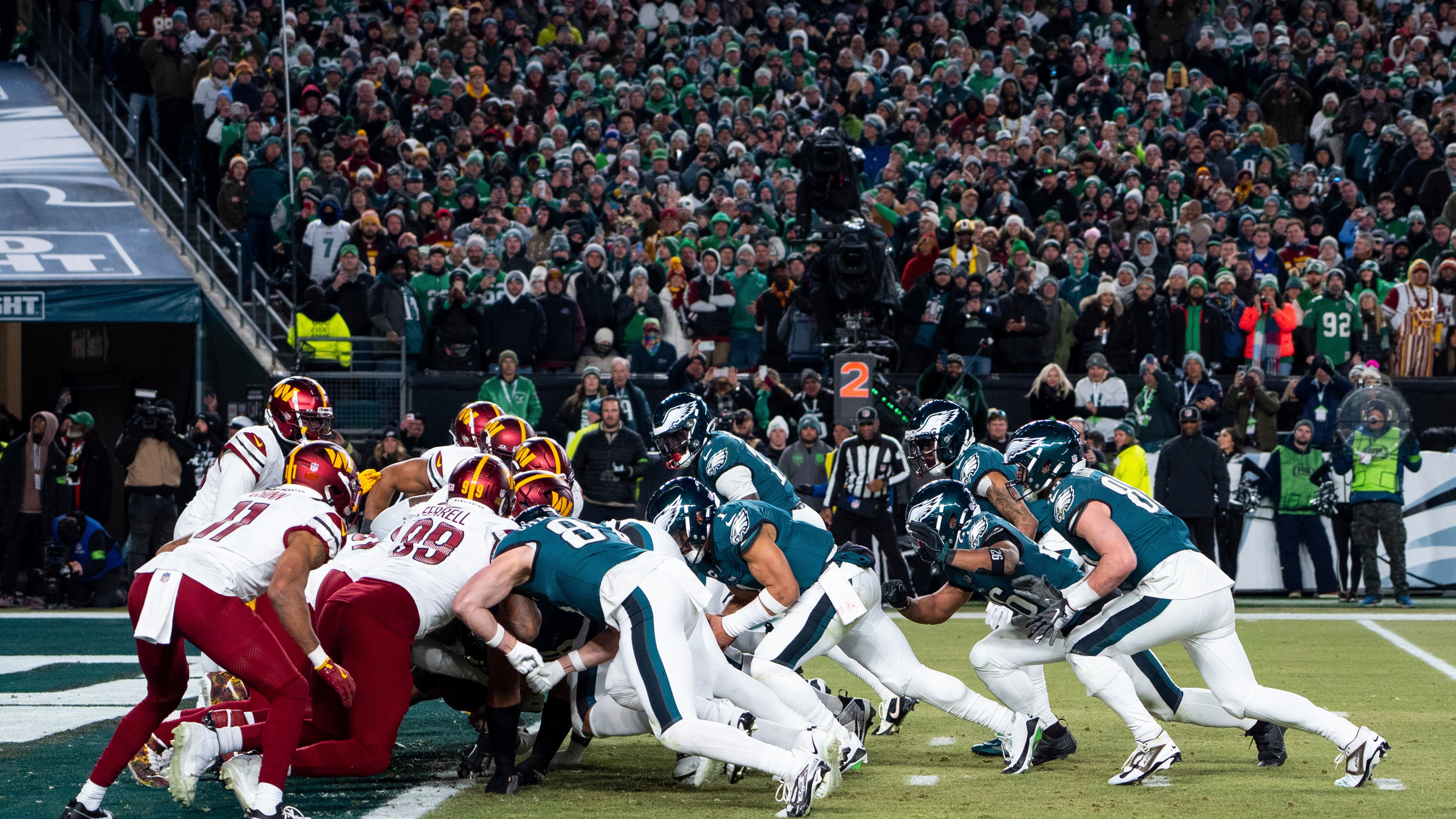Two major changes could be coming to the NFL as early as next week. NFL owners are set to vote on the tush-push ban and a playoff-reseeding proposal at a league meeting in May, according to Albert Breer of Sports Illustrated.
Both issues were considered at the owner's meeting in March. And while spirited discussions took place — particularly around the tush push — NFL owners decided to push both proposals down the road. After a few months, that vote will finally take place.
The proposal to ban the tush push is self explanatory. The Green Bay Packers introduced the proposal ahead of the March meeting. It seeks to "prohibit an offensive player from pushing a teammate who was lined up directly behind the snapper and receives the snap, immediately at the snap." The proposal doesn't use the term "tush push," but it's clearly describing the play.
The Philadelphia Eagles first introduced and popularized the tush push during the 2022 NFL season. When the team is faced with a short-yardage situation, it runs a modified quarterback sneak, in which Jalen Hurts grabs the snap and pushes his way across the first-down marker. Two players typically line up in the backfield and shove Hurts forward, helping him secure a first down.
While other clubs have adopted the play, no team runs it as well as the Eagles. Philadelphia, which is coming off its first Super Bowl win since 2018, is — not surprisingly — among the clubs opposed to banning the play.
The May proposal is unchanged from the one the Packers suggested ahead of the March meetings.
Lions' NFL playoff reseeding proposal, explained
The playoff-reseeding proposal would drastically alter the NFL postseason if adopted. The proposal — which was originally put forward by the Detroit Lions — seeks to seed teams based on record at the start of the playoffs.
That's not the way the NFL operates. Under the current playoff-seeding system, division winners receive the top-4 seeds in each conference. The wild-card teams are then seeded by record. This can lead to scenarios where a 9-8 team that wins a division is seeded higher than an 11-6 team that finished second in its division. As a result, that 11-6 team — despite winning more games in the regular season — has to go on the road for the first round of the playoffs.
If the Lions' proposal is adopted, that 11-6 wild-card team would have a higher seed in the playoffs than the 9-8 team that won its division. As a result, the wild-card team would be the home team during the first round of the playoffs.
The proposal could have a major impact on the NFL postseason. If the Lions' proposal was adopted last year, the Minnesota Vikings, which won 14 games, would have hosted a playoff game in the first round. Instead, the team went on the road to play the Los Angeles Rams, which won 10 games last season. The Vikings were upset in the contest and knocked out of the playoffs after just one game.
Similarly, the Green Bay Packers, which won 11 games last season, would have been the No. 5 seed instead of the No. 7 seed. The team would have still been required to play a game on the road in the first round of the playoffs, but wouldn't have had to face off against the No. 2 seed Eagles immediately. Like the Vikings, the Packers lost that game and were eliminated from the playoffs in the first round.
The Lions made some tweaks to the proposal ahead of May's meeting. As part of the updated proposal, teams would be reseeded after the first round. In that scenario, the No. 1 overall seed would play the lowest seed left after the first round of the playoffs. Under the current system, the No. 1 overall seed plays the winner of the No. 4 seed vs. the No. 5 seed every year.
Both proposals need approval from at least 24 of 32 team votes to pass.






